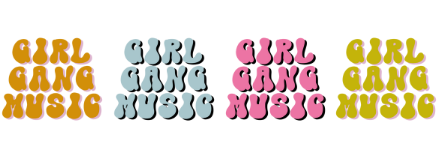The music-sharing platform SoundCloud quietly updated its terms of use in February 2024, adding language that lets it train AI models on its users’ content, as TechCrunch reported.
In November 2024, SoundCloud unveiled six new AI-powered tools they describe as designed to democratize music creation for all artists. The company says they view these as tools to empower creators, by providing accessible and innovative resources for music production.
For many independent artists—especially creatives concerned about climate and copyright law—the announcement raised more questions than excitement.
SoundCloud’s latest integrations include:
- Tuney: Remix and edit tracks effortlessly.
- Tuttii: Simplified AI-driven remixing for licensed music.
- AlBeatz: Generate and customize beats.
- TwoShot: Collaborative AI tools for creating custom samples.
- Starmony: Tailored for singers and rappers, supporting fan music creation.
- ACE Studio: Generate singing vocals from MIDI and lyrics with studio-quality AI voices.
Concerns about Copyright
In response to concerns about AI and copyright, SoundCloud has clarified its stance to The Verge. Marni Greenberg, SVP and head of communications at SoundCloud, provided the following in a statement emailed to The Verge:
“SoundCloud has never used artist content to train AI models, nor do we develop AI tools or allow third parties to scrape or use SoundCloud content from our platform for AI training purposes. In fact, we implemented technical safeguards, including a “no AI” tag on our site to explicitly prohibit unauthorized use.”
Ethics, Consent, and the AI Grey Area
SoundCloud has denied using artist uploads to train AI models without permission, but its updated terms of service opened a floodgate of concern in 2024. Legal experts and artists alike questioned vague clauses that appeared to grant SoundCloud broad rights over user content.
Though the company has since clarified and added features like a “no AI” tag, many remain skeptical. If history has shown anything, it’s that tech platforms tend to move fast and ask permission later.
What This Means for Women and LGBTQIA+ Creatives
For artists from marginalized communities, the risks of AI are compounded:
- Loss of control: AI models could replicate your style or vocals without proper credit or compensation.
- Job displacement: Producers, vocalists, and songwriters may be sidelined in favor of cheaper, faster machine-made alternatives.
- Increased competition: The flood of AI-generated music could make discoverability even harder for independent creatives.
- Platform trust erosion: If SoundCloud isn’t clear about how artist content is used, how can creators feel safe?
Whether you like it or not, it seems artificial intelligence is impacting every industry there is. AI may be the next wave in music tech, but without regulation, consent, and equity, it risks becoming yet another tool that favors major players while exploiting independent voices.
SoundCloud’s AI rollout is not just a “toolbox”—it’s a turning point. As AI becomes embedded in every aspect of music production and distribution, artists—especially those from marginalized communities—must demand transparency, control, and compensation.
Because at the end of the day, innovation that erases the artist is not progress.

